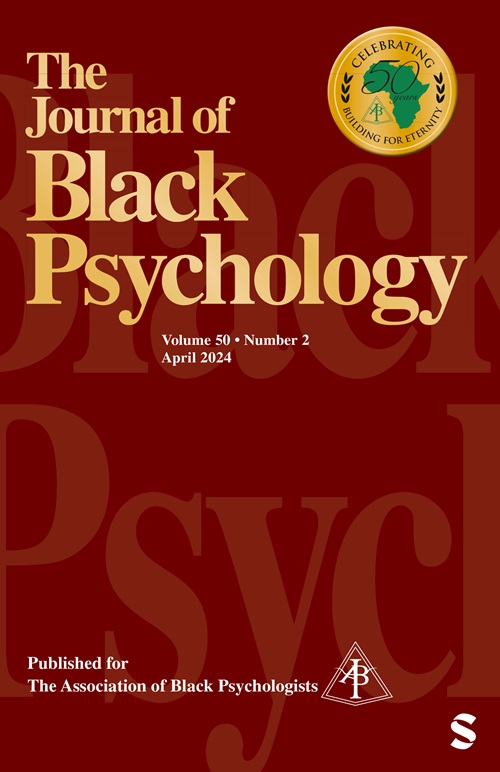Examining Psychosociocultural Influences as Predictors of Black College Students’ Academic Self-Concept and Achievement
IF 2.2
3区 心理学
Q2 PSYCHOLOGY, MULTIDISCIPLINARY
引用次数: 2
Abstract
Using the psychosociocultural framework, this study concurrently examined the influence of psychological (academic self-concept and academic engagement attitudes), social (caring student-faculty relationships), and cultural variables (racial centrality and perceived university environment) on the academic achievement of Black college students. Participants were 247 Black collegians recruited from a large, Southwestern predominately White institution. Results of structural equation modeling largely supported hypothesized relationships between variables, accounting for 16% of the variance in grade point average (GPA), 75% of the variance in academic engagement, and 29% of the variance in academic self-concept. Results revealed two positive direct paths to GPA: (a) racial centrality and (b) academic self-concept; academic self-concept had a key role in facilitating indirect effects on academic engagement and GPA. Findings highlight multiple noncognitive predictors that can facilitate Black students’ academic functioning. Research and practice implications of these findings are outlined.心理社会文化影响对黑人大学生学业自我概念和学业成就的影响研究
本研究采用心理社会文化框架,同时考察了心理变量(学业自我概念和学业投入态度)、社会变量(关爱师生关系)和文化变量(种族中心性和感知大学环境)对黑人大学生学业成绩的影响。参与者是247名黑人大学生,他们来自西南部一所以白人为主的大型大学。结构方程模型的结果在很大程度上支持变量之间的假设关系,占平均成绩(GPA)方差的16%,学术投入方差的75%,学术自我概念方差的29%。研究结果揭示了影响GPA的两个正向直接途径:(a)种族中心性和(b)学术自我概念;学业自我概念在学业投入和GPA的间接影响中起关键作用。研究结果强调了多种非认知预测因素可以促进黑人学生的学业功能。概述了这些发现的研究和实践意义。
本文章由计算机程序翻译,如有差异,请以英文原文为准。
求助全文
约1分钟内获得全文
求助全文
来源期刊

Journal of Black Psychology
PSYCHOLOGY, MULTIDISCIPLINARY-
CiteScore
8.00
自引率
5.80%
发文量
22
期刊介绍:
The Journal of Black Psychology publishes scholarly contributions within the field of psychology toward the understanding of the experience and behavior of Black populations. This includes reports of empirical research and discussions of the current literature and of original theoretical analyses of data from research studies or programs. Therefore, the Journal publishes work in any of the areas of cognition, personality, social behavior, physiological functioning, child development, education, and clinical application, in addition to empirical research and original theoretical formulations outside traditional boundaries, all integrated by a focus on the domain of Black populations and the objective of scholarly contributions.
 求助内容:
求助内容: 应助结果提醒方式:
应助结果提醒方式:


